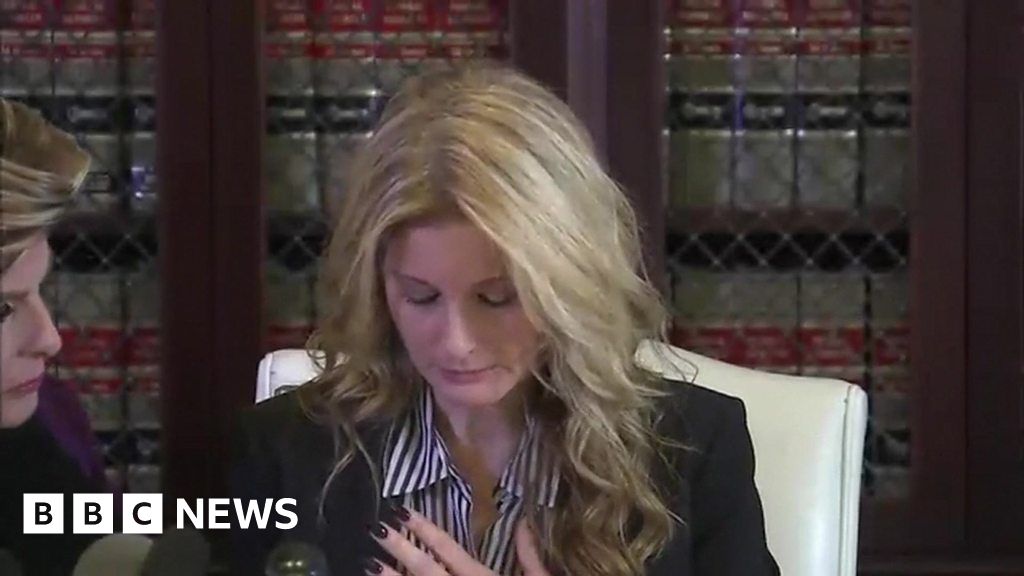Trump, Epstein & "Katie Johnson": Shocking Court Docs Surface!
Is justice truly blind, or are some individuals shielded by wealth and power? The specter of sexual abuse allegations continues to haunt former President Donald Trump, with disturbing claims resurfacing through court documents, casting a long shadow over his legacy.
The legal battles involving Donald Trump and the late Jeffrey Epstein have once again captured public attention, as allegations of sexual abuse continue to circulate. At the center of this controversy is a woman who has used the pseudonyms "Katie Johnson" and "Jane Doe," who has twice initiated civil lawsuits against Trump and the deceased billionaire Jeffrey Epstein, alleging that she was sexually abused by them when she was just 13 years old. These lawsuits, filed in both California and New York, paint a disturbing picture of alleged events that took place decades ago.
The initial lawsuit, filed in April 2016 in California under the name Katie Johnson, accused both Trump and Epstein of forcibly raping her at underage sex parties held at Epstein's Manhattan residence in 1994. The complaint details graphic accusations, claiming Trump violently assaulted her during an orgy hosted by Epstein, who was later convicted in 2008 of soliciting an underage girl for prostitution. This initial case was eventually dismissed, but the allegations resurfaced in subsequent legal filings in New York, where the plaintiff was identified as Jane Doe.
The New York lawsuit reiterates the allegations that Trump raped her in the summer of 1994, when she was 13 years old. These claims are further complicated by the known association between Trump and Epstein. Court documents indicate that Trump acknowledged knowing Epstein for many years. According to a New York interview on October 28, 2002, Trump said, "I've known Jeff for fifteen years. Terrific guy. He's a lot of fun to be with." This connection has fueled further scrutiny of Trump's alleged involvement in Epstein's activities.
The resurfacing of these allegations has sparked intense debate and scrutiny. Social media platforms are rife with discussions about the court documents and the veracity of the claims. A viral post circulating online features a court document detailing the sexual assault allegations against Trump, originating from a legal filing that was previously dismissed. This has led to renewed interest in the case and the woman behind the accusations.
Further complicating the matter is the reported fear and intimidation experienced by the accuser. Trump's accuser was expected to appear at a news conference in early November 2016, but her attorney, Lis Bloom, stated that she had received threats and was too afraid to attend. This raises serious concerns about the safety and well-being of individuals who come forward with allegations against powerful figures.
Donald Trump and his campaign have consistently denied these allegations, dismissing them as fabricated and politically motivated. They maintain that the stories are untrue and designed to damage Trump's reputation. This stance has further polarized public opinion, with supporters rallying behind Trump and critics demanding accountability.
The Daily Beast conducted an in-depth investigation into the case and the individuals supporting the accuser in July, reaching a devastating conclusion. The specifics of this conclusion remain sensitive and subject to legal interpretation. The only journalist to purportedly speak with Doe seemingly left unsatisfied by the encounter.
Adding another layer of complexity, it is alleged that Trump threatened to kill Johnson and her family in 1994 if she ever revealed what he and Epstein had allegedly done to her. Furthermore, Johnson allegedly received death threats again in November, contributing to her fear and reluctance to come forward publicly.
The case of Katie Johnson, or Jane Doe, highlights the challenges and complexities of pursuing legal action against powerful individuals accused of sexual abuse. The allegations against Donald Trump and Jeffrey Epstein, the use of pseudonyms to protect the accuser's identity, the reported threats and intimidation, and the dismissals and refilings of lawsuits all contribute to a convoluted and emotionally charged situation. As the legal proceedings continue and public scrutiny intensifies, the pursuit of justice remains a central theme in this ongoing saga.
It remains to be seen how these allegations will ultimately be resolved, but their impact on the public perception of Donald Trump and the ongoing conversation surrounding sexual abuse is undeniable. The case serves as a stark reminder of the importance of holding powerful individuals accountable and providing support for victims of sexual assault.
| Category | Information |
|---|---|
| Pseudonym | Katie Johnson, Jane Doe |
| Allegations | Sexual abuse by Donald Trump and Jeffrey Epstein when she was 13 years old |
| Timeline of Alleged Events | Summer of 1994 |
| Location of Alleged Events | Jeffrey Epstein's Manhattan residence, underage sex parties |
| Legal Actions | Filed civil lawsuits in California (2016) and New York |
| California Lawsuit | Filed under the name Katie Johnson; later dismissed |
| New York Lawsuit | Filed under the name Jane Doe |
| Alleged Threats | Received threats, including death threats, preventing public appearance |
| Trump's Response | Denies allegations, claims they are fabricated and politically motivated |
| Epstein's Involvement | Convicted in 2008 of soliciting an underage girl for prostitution |
| Trump's Relationship with Epstein | Acknowledged knowing Epstein for years |
| Journalistic Investigation | The Daily Beast conducted an in-depth investigation |
| Reference Link | U.S. Department of Justice |
The intricate details of the legal filings, the alleged threats, and the public denial by Trump's camp contribute to a narrative that extends beyond a simple accusation. It delves into themes of power, influence, and the often-uneven playing field of justice.
One crucial aspect of this case is the alleged connection between the accused and the deceased. Trump's past comments about Epstein, where he described him as a "terrific guy" and "a lot of fun to be with," have been brought into sharp focus. These remarks, resurfaced from a 2002 interview, cast a shadow of scrutiny over their association and its potential relevance to the allegations.
The legal journey has been fraught with challenges, including the initial dismissal of the California lawsuit and the subsequent refiling in New York. This pattern underscores the difficulties faced by individuals attempting to bring allegations of this nature to light, particularly when the accused are prominent and powerful figures.
Another significant element is the psychological impact on the accuser, who has reportedly experienced threats and intimidation. Her attorney's statement regarding her fear to appear at a news conference highlights the real-world consequences of coming forward with such accusations. This aspect of the case sheds light on the vulnerability of accusers and the potential dangers they face.
The narrative surrounding the "Katie Johnson" or "Jane Doe" case also touches upon the role of media and public perception. The viral spread of court documents and the in-depth investigations conducted by news outlets have shaped the public discourse around the allegations. The case serves as a reminder of the media's power to influence public opinion and the importance of responsible and thorough reporting.
From a legal perspective, the case raises important questions about the statute of limitations, the burden of proof, and the challenges of prosecuting historical allegations of sexual abuse. The legal complexities involved contribute to the protracted nature of the proceedings and the difficulty in achieving a definitive resolution.
Beyond the legal and factual aspects, the case also carries significant social and ethical implications. It prompts reflection on the treatment of sexual assault survivors, the responsibility of powerful individuals, and the need for accountability in matters of sexual misconduct.
The long shadow of the allegations continues to loom over Donald Trump, influencing public sentiment and potentially impacting his future political endeavors. While the legal proceedings unfold, the case serves as a critical reminder of the power of allegations to shape perceptions and alter destinies.
The intersection of wealth, power, and alleged sexual misconduct is a recurring theme in modern society, and the case of "Katie Johnson" or "Jane Doe" encapsulates this dynamic in a stark and unsettling way. The ongoing scrutiny and legal maneuvering serve as a testament to the enduring complexities and the long road to justice in cases of this nature.
The case highlights the ongoing debate about the balance between the presumption of innocence and the need to hold individuals accountable for their actions. It also raises questions about the role of public opinion in shaping legal outcomes and the potential for political motivations to influence the course of justice.
As the legal saga continues, the case of "Katie Johnson" or "Jane Doe" will undoubtedly remain a subject of intense scrutiny and debate. The outcome will have far-reaching implications, not only for the individuals involved but also for the broader conversation surrounding sexual abuse, accountability, and the pursuit of justice in the face of power and influence.
The case underscores the importance of providing support and resources for survivors of sexual assault and the need for societal changes to prevent and address sexual misconduct. It also highlights the challenges faced by accusers in navigating the legal system and the importance of protecting their rights and ensuring their safety.
Ultimately, the case of "Katie Johnson" or "Jane Doe" serves as a complex and multifaceted narrative, encompassing legal, social, ethical, and political dimensions. The ongoing scrutiny and the pursuit of justice will continue to shape the public discourse and inform the ongoing efforts to address sexual abuse and promote accountability in society.
The detailed allegations, the denials, the legal complexities, and the emotional impact all contribute to a narrative that extends far beyond a simple accusation. It is a story of power, influence, vulnerability, and the enduring quest for justice in a world where the scales are often tipped in favor of the powerful.
In conclusion, the story of "Katie Johnson" or "Jane Doe" stands as a testament to the enduring challenges and complexities of pursuing justice in cases involving allegations of sexual abuse against powerful individuals. The ongoing legal proceedings and the intense public scrutiny underscore the importance of accountability, the need to support survivors, and the enduring quest for truth in a world often shrouded in shadows of power and influence.

How the Supreme Court could decide Trump’s blockbuster fight for

US election Trump sex assault accuser speaks out BBC News

Trump and Mike Johnson to Make Announcement on ‘Election Integrity